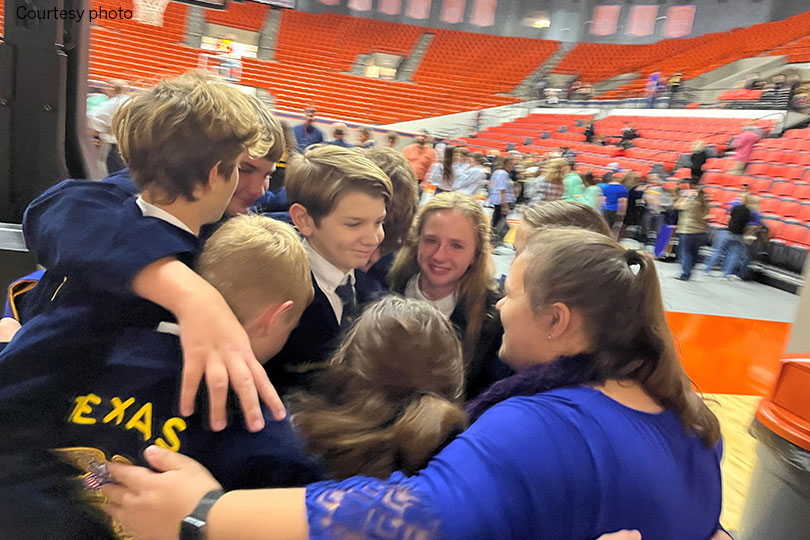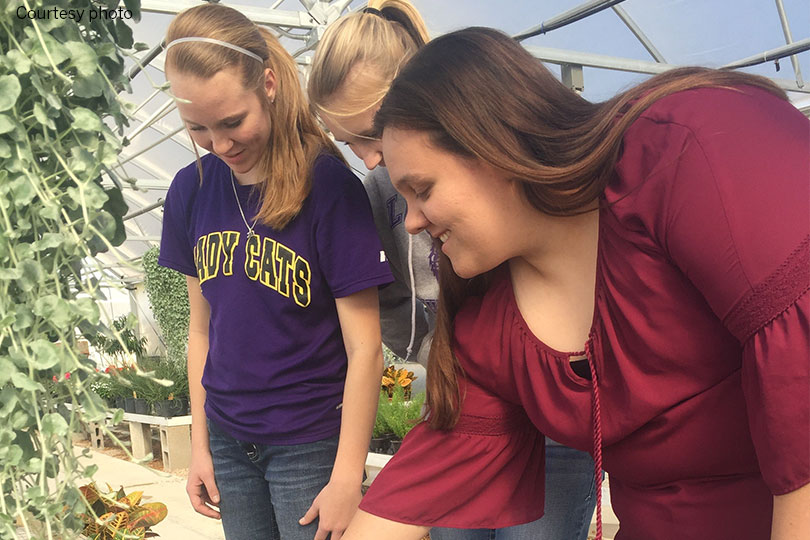By Julie Tomascik
Editor
Passionate agricultural science teachers and FFA advisors inspired Amanda Spacek to pursue a career in agricultural education.
She’s now in her fifth year of teaching agricultural science courses and leading FFA members at Weimer High School.
“Because of their immense dedication to all Texas FFA members, regardless of where they called home, they made me want to become a part of this incredible community of individuals,” she said.
Spacek is molding the next generation of leaders in her classroom, where she teaches advanced animal science, professional communications and principles of agriculture, food and natural resources, the introductory course for agricultural education students.
And at Weimer High School, every freshman must take the introductory agricultural course.
“By having them in that class, a lot of times they develop a passion or find interests that maybe they didn’t know they have. I attribute a lot of that to our administration allowing them to come into that class as freshmen,” she said.
Students who don’t think they fit into agriculture can learn more about food and fiber production and get to explore the endless opportunities available through FFA. That’s what happened for one Weimar FFA student who eventually became a leader in the youth program.
“It was really eye opening to me seeing someone who didn’t necessarily think they fit into ag would find a home in the FFA program and ended up becoming our chapter president, won two state contests during her time in school and qualified for several other state level competitions,” she said. “I think that goes to show the importance of having every student there in class, and beyond that, those kids really get to understand how important agriculture is in their lives.”
There are over 200 students in Weimer FFA. The chapter is focused on premier leadership, personal growth and career success through agricultural education and community service activities.
“There’s something for everyone in agricultural education programs, and it’s our hope as ag teachers that when students leave our program, they are equipped for their future regardless of where life leads them,” she said.
Each day and each class are different.

Spacek spends her days teaching in the classroom. Before and after school, she can be found helping FFA members with projects, traveling to various FFA contests or livestock shows and developing engaging lesson plans.
It can be a lot to manage, but many ag teachers in the Lone Star State like Spacek have accepted that challenge. All to grow the future of agriculture and Texas.
“We have former students from our program studying food science, ag communications, horticulture, agricultural leadership, agricultural education and wildlife. All of those students have the intent of pursuing a career in agriculture,” she said.
But former Weimer FFA students are also pursuing careers that indirectly affect agriculture, such as policymakers, community leaders, businesses owners and more.
“I have no doubt that every student is going to make a difference in their local community, regardless of where they end up because of the experiences they had in ag education,” Spacek said.
And she hopes some students will be inspired by their agricultural teachers today and just maybe pursue the same career.
“We’re currently facing a nationwide shortage of agricultural science teachers,” Spacek said. “We really want to focus on empowering the next generation of ag teachers.”
National FFA membership set a record with 850,823 members. The top five membership states are Texas, California, Georgia, North Carolina and Tennessee.
Thursday, Sept. 15, is National Teach Ag Day. It is designed to encourage others to teach agriculture and recognize the important role that agriculture teachers play in schools and communities.
“I hope to influence someone’s life the way my teachers and advisors did,” Spacek said.
For more information on Teach Ag Day, visit naae.org/teachag. Meet another Texas agriculture science teacher, Melissa Rosenbusch, in this article.

